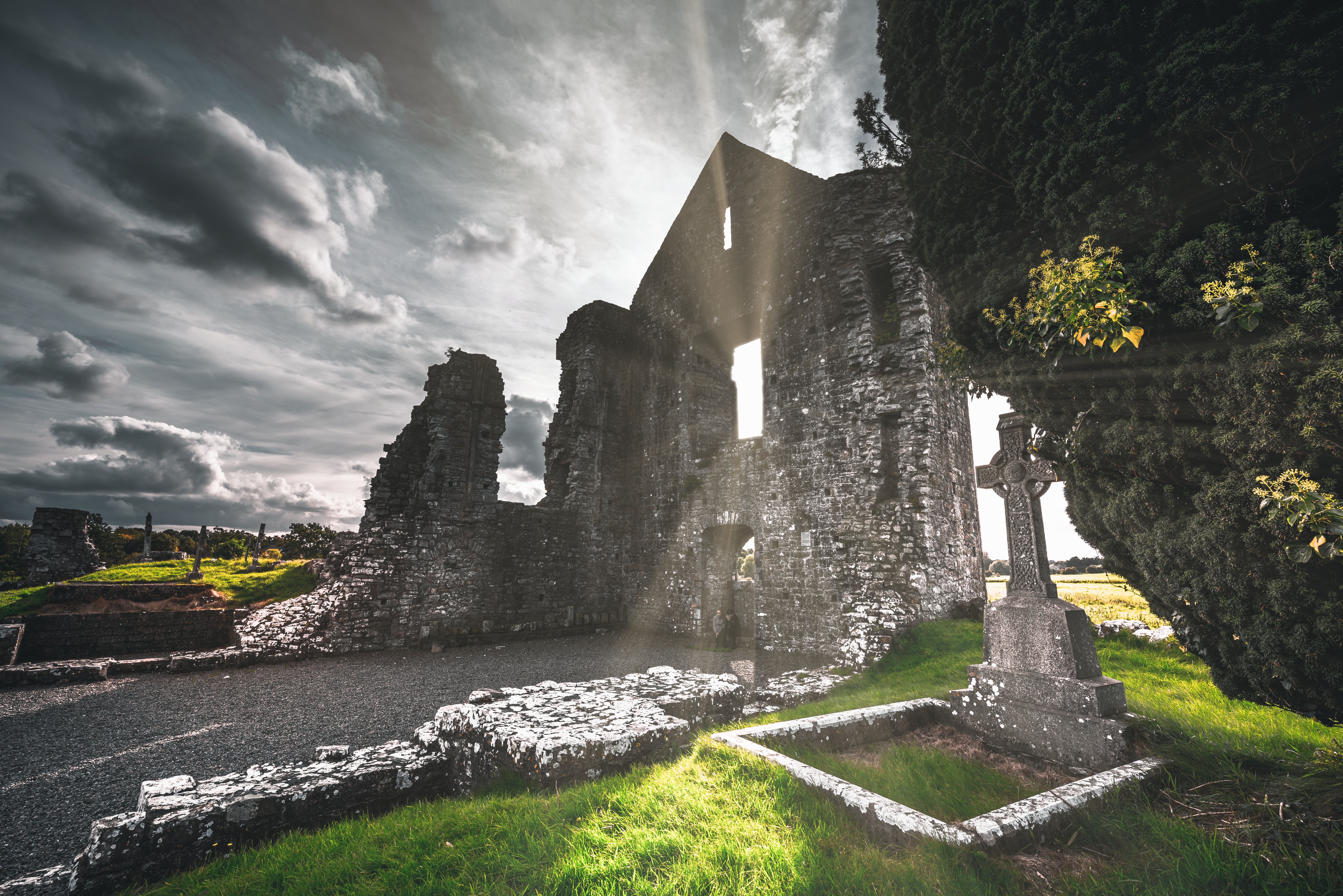MINI-COURSE ON PRAYER
SECTION 2 CHRISTIAN MEDITATION
Part 17 – Making the Impossible Possible

Editor’s Note: in part 16, David Torkington discussed the movement in prayer from paralysis in the face of the enormity of Christian revelation, to growing fruitfulness in meditation, to the failure of words to convey the depth of love one experiences in God’s presence. This week he discusses how it is love that animates all Christian asceticism and makes possible even the most severe sacrifices.
In the prayer that leads from meditation to contemplation, the deep human desire for love that has always been there is gradually transformed. It is set alight by reflecting and ruminating on love – God’s love. This love is made visible to us as we see it embodied in Jesus Christ, and as it is expressed in all that he said and did in his life, death, and Resurrection. Gradually, as meditation deepens, the same Holy Spirit who gave birth to Jesus and inspired and animated all that he was, and all that he did, begins to suffuse and surcharge our weak human love. At first sparks of love are generated that gradually become a single flame that reaches out to the love that burns in Christ until the flashpoint comes when his love and our love become as one. This, the high point of meditation, is called ‘Acquired Contemplation’. It is experienced in the mind, the heart, and the body, as our whole person is deeply enthralled by love.
For this whole process to take place in what St Angela of Foligno called the School of Divine Love, time must be found for meditation or nothing will happen. All that I have been describing will have been no more than a fantasy. But if time is given regularly, then in time we will receive the love that I have been describing. It will so suffuse and surcharge our love that we will be able to behave more and more like Christ, not only enabling us to love God in and through him but to love others too as Jesus loved others, for now he is able to love them through us. That is what St Paul meant when he said, “I live now, not with my own life, but with the life of Christ who lives in me.” (Galatians 2:20).
I have often been asked how long it takes to arrive at ‘Acquired Contemplation’. It simply depends on the time we are able to give for the sort of meditation that I have been describing. With daily regularity one or two years at the most, but few of us are able to do this when family life is at its most demanding. In perfect conditions, and with help, it can take much less. Before the heresy of Quietism undermined mystical theology (1687) the novitiate was seen as the place where young religious would be taught the meditation that would lead them to ‘Acquired Contemplation’. This was seen as the ideal, because ‘Acquired Contemplation’ does not last for long before the pray-er is suddenly led into Mystical Contemplation, and for this sudden new departure, help, explanations and the support of a competent novice master or novice mistress is needed.
Making The Impossible Possible
The spiritual life seems to have become so complicated that you feel you need a couple of degrees in theology just to understand it before you can attempt to live it. Yet it is essentially simple, so simple that you need the simplicity of a little child to see it. There is only one thing that is necessary, and that is love. Not our love of God, but his love of us. In other words, Christianity is firstly a mysticism, not a moralism. It is not primarily concerned with detailing the perfect moral behaviour that we see embodied in Christ’s life and then trying to copy it, virtue by virtue in our lives. That is stoicism, not Christianity, and it is doomed to failure. Christianity is primarily concerned with teaching us how to turn and open ourselves to receive the same Holy Spirit who filled Jesus. The more we are filled with his love then the easier it is to return it in kind, as the divine suffuses and then surcharges human love so that it can reach up to God and out to others. Then, and only then are we able to love God with our whole hearts and minds and with our whole beings and to love our neighbour as Christ loves us.
Reading the Lives of the Saints Forward – Not Backward!
The trouble is we make the same mistake with Christ as we do with the saints. We read their lives backward. We read about their rigorous way of life, their superhuman sacrifices, and their heroic virtues, and believe that the only way we can be like them is to do likewise. If we only read their lives forward instead of backward then we would see that they were only capable of doing the seemingly impossible because they first received the power to do it in prayer. If we try to be and do what they did without first receiving what they received in prayer, then our brave attempts will inevitably end in disaster.
True imitation of Christ or any of his saints means firstly copying the way they did all in their power to receive in prayer the Holy Spirit who inspired and strengthened them with his love, to do what is impossible without it. That is essentially all we have to do. That is why the spiritual life is so simple if only we have the simplicity of a little child to see it.
Asceticism Made Simple
Although it is true that you cannot have a mystical life without an ascetical life, asceticism for a beginner is quite simple. Do not give up anything you like or enjoy except when it prevents you from giving quality space and time to God in prayer each day. If you think it is too easy then try it and stick to it and you will soon find it is not quite as easy as you thought. Do not let first enthusiasm fool you into heroics that you will never sustain. When you have persevered for long enough you will gradually begin to receive and then experience the love that will enable you to do what is quite impossible without it.
When we fall in love and begin to experience being loved, then there is nothing we would not do, nor any sacrifice we would not make for the person we love. We positively look for things to do, the harder and the more exacting the better, to enable us to show the real quality of our love. What was impossible to a self-centered egotist only a short time before becomes not only easier but also our greatest pleasure. It is exactly the same in the spiritual life. The exemplary behaviour, the extraordinary self-discipline and the heroic sacrifices made by those who begin to experience the love of God are not the results of arrogant stoics trying to make themselves perfect. They are the actions of someone desperate to express their love in behaviour that could not be maintained for long without the love that sustains then from within. All the little pleasures and pastimes that were thought indispensable before, suddenly become dispensable, and with the greatest of ease.
When the love of God strikes a human heart it strikes it as a simple ray of light strikes a prism. Just as that light is then diffused and transformed into all the colours of the rainbow, so the love of God is diffused and transformed into all the virtues and supernatural gifts that are needed. All this happens simultaneously, as the love of God suffuses our own imperfect love, making it possible for us to love God in return and the neighbour in need, in all that we say and do. In short, first seek God and his Kingdom which is love, and everything else you want or desire will be given to you.
These ideas are developed further in my two major works on prayer – Wisdom from the Western Isles and Wisdom from the Christian Mystics, and Wisdom from Franciscan Italy that show how deep contemplative prayer grows to perfection.
+
Photo credit: Jonathan Bowers via Unsplash






